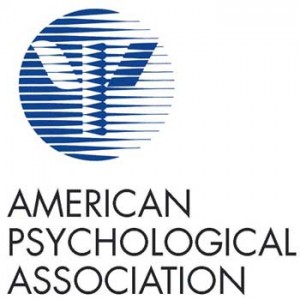 The American Psychological Association (APA), the world’s largest psychology organization, has worked for more than 100 years to advance psychology as a science, as a profession, and as a way to promote health, education, and human welfare. Psychology is a dynamic and diverse field. Psychologists follow dozens of career paths and pursue their craft in a variety of work settings. Career development resources available through the APA are as varied as the discipline itself: programs and products for every psychologist, from the bench scientist to the clinician and from the psychology graduate student to the mid-career professional.
The American Psychological Association (APA), the world’s largest psychology organization, has worked for more than 100 years to advance psychology as a science, as a profession, and as a way to promote health, education, and human welfare. Psychology is a dynamic and diverse field. Psychologists follow dozens of career paths and pursue their craft in a variety of work settings. Career development resources available through the APA are as varied as the discipline itself: programs and products for every psychologist, from the bench scientist to the clinician and from the psychology graduate student to the mid-career professional.
APA works to foster innovative and high-quality psychology teaching at all levels, from high school to postgraduate, including research and applied training. APA is the accrediting body for doctoral programs, internships, and postdoctoral residency programs in professional psychology. Accreditation is important, especially for students interested in a career in professional practice, because most state licensing boards in psychology require that licensure applicants possess a doctoral degree from an accredited program.
Preparation for a career in psychology should start early, at the undergraduate level if possible. Psychology students at the high school and undergraduate levels can be affiliate members of the APA. Graduate students can join as APA student affiliates and automatically also belong to the American Psychological Association of Graduate Students (APAGS).
After graduation and internship, early and mid-career psychologists can find important career development resources available from APA, from continuing professional education to midcareer seminars specifically designed for research psychologists, on issues such as analyzing large databases and using MRI (magnetic resonance imaging) technology in brain research. APA also offers programs and workshops at regional and national conferences for psychologists interested in exploring academic careers.
APA publishes a variety of psychology books, journals, and electronic information products, all useful to students of psychology at any level. Two APA electronic databases, PsyclNFO (article abstracts) and PsycARTICLES (full text), cover the psychological literature published from 1887 to the present.
A number of APA books are of particular interest to students. These titles include The Publication Manual of the American Psychological Association; Mastering APA Style Student Workbook; Is Psychology the Major for You?; Getting In: A Step-by-Step Guide to Gaining Admission to Graduate School in Psychology; and Graduate Study in Psychology.
Also published by APA are 46 peer-reviewed psychology journals, including the Journal of Social and Personality Psychology and Health Psychology, and two news-magazines, the Monitor on Psychology (monthly) and gradPSYCH, a quarterly magazine for psychology graduate students.
The APA annual convention includes opportunities for psychologists to hear presentations by distinguished scholars and leaders in the field. The convention includes hundreds of symposia, panel presentations, poster and paper sessions, and workshops on cutting-edge research, education trends, and practice experience.
“Psyccareers” (http://www.psyccareers.com/) is an online resource for psychology employment, used by both job seekers and organizations with jobs to fill. APA members can post their resumes and search both nationally and internationally for available positions in psychology.
